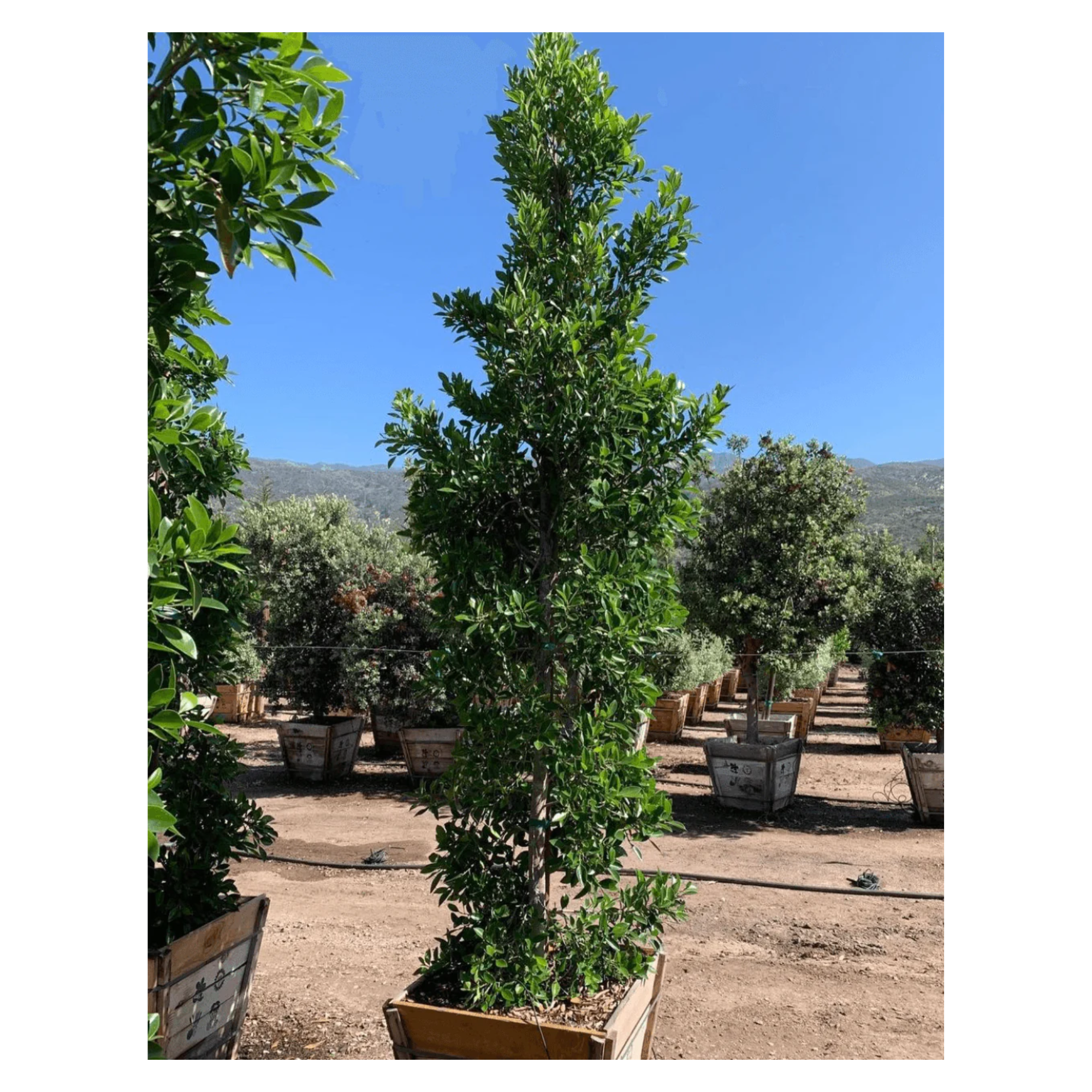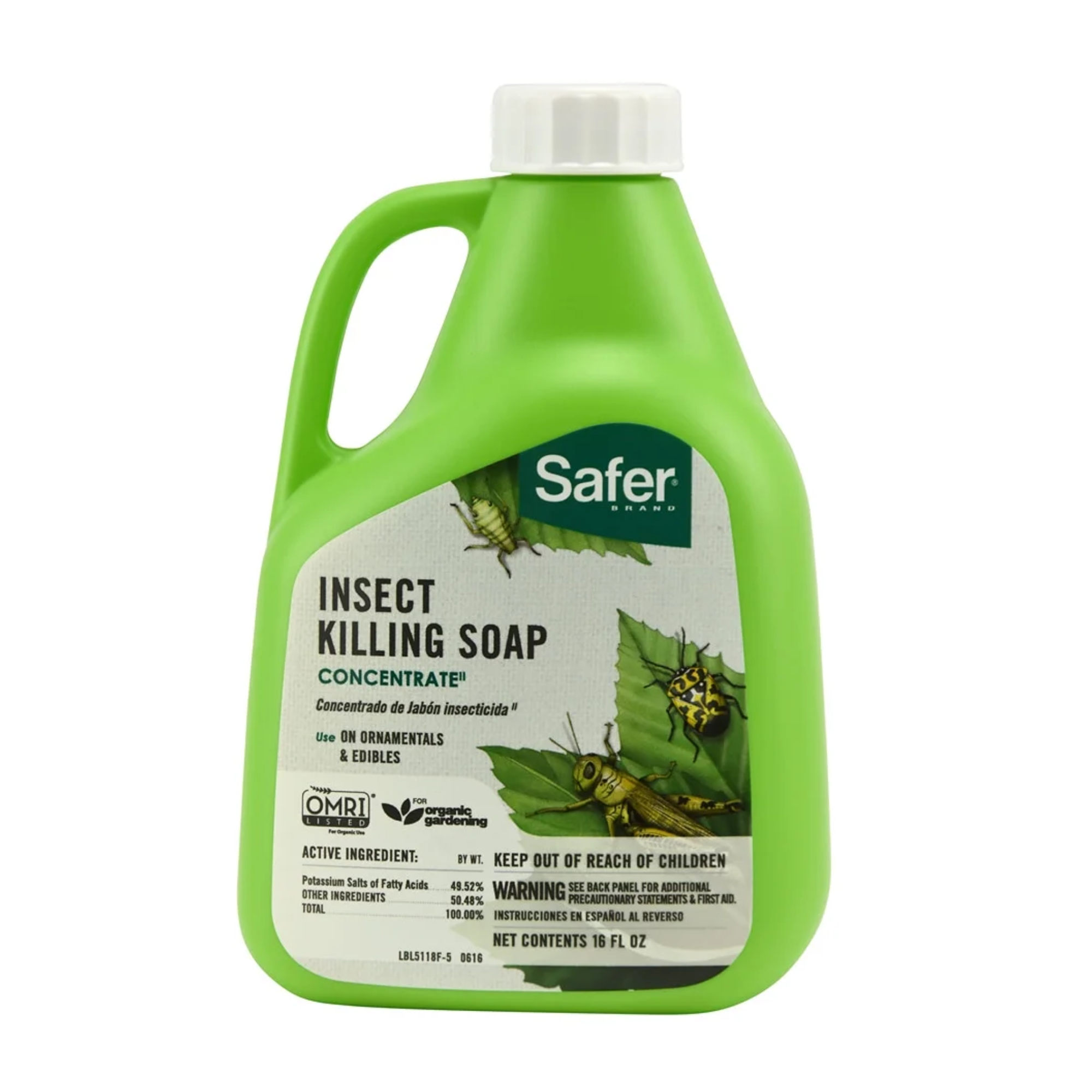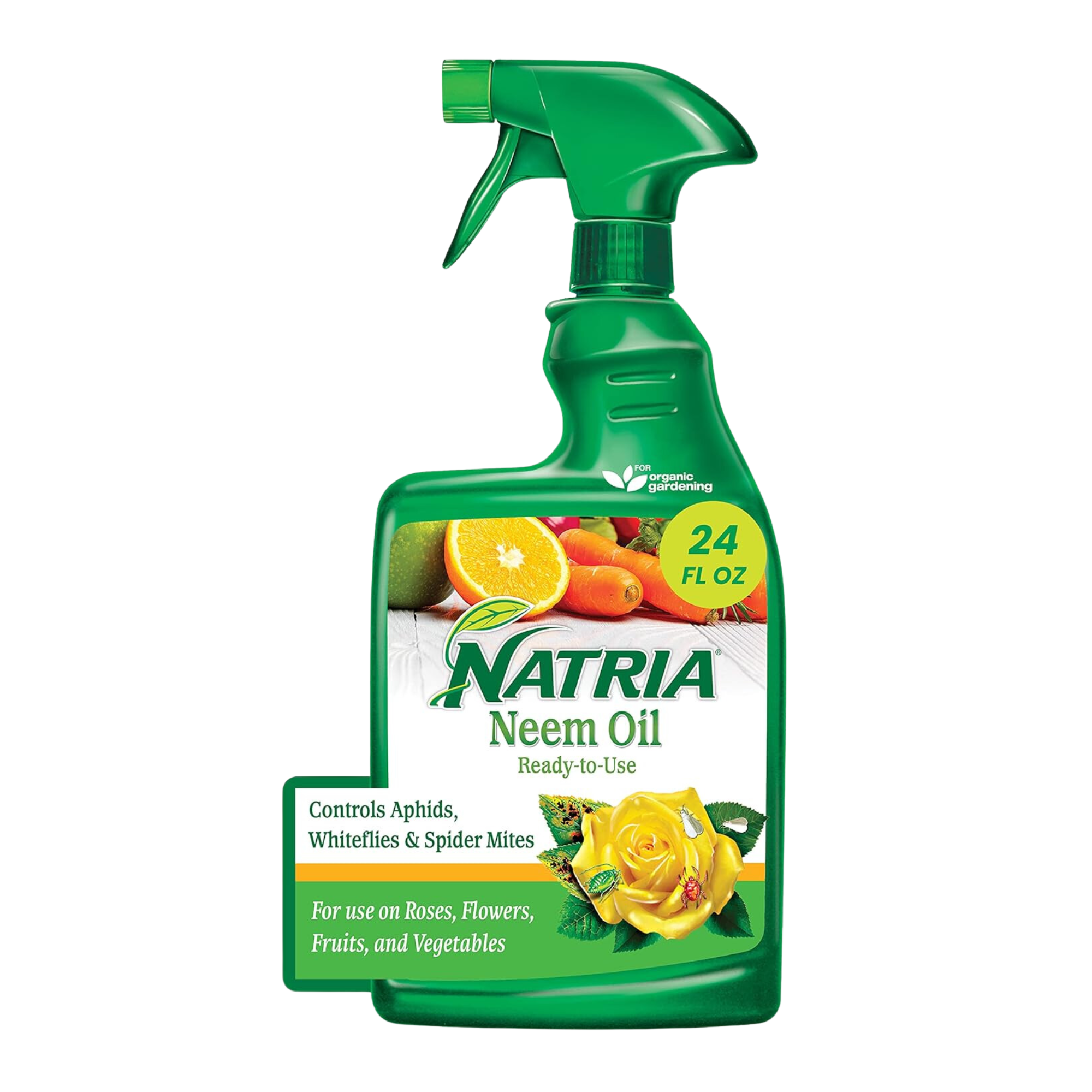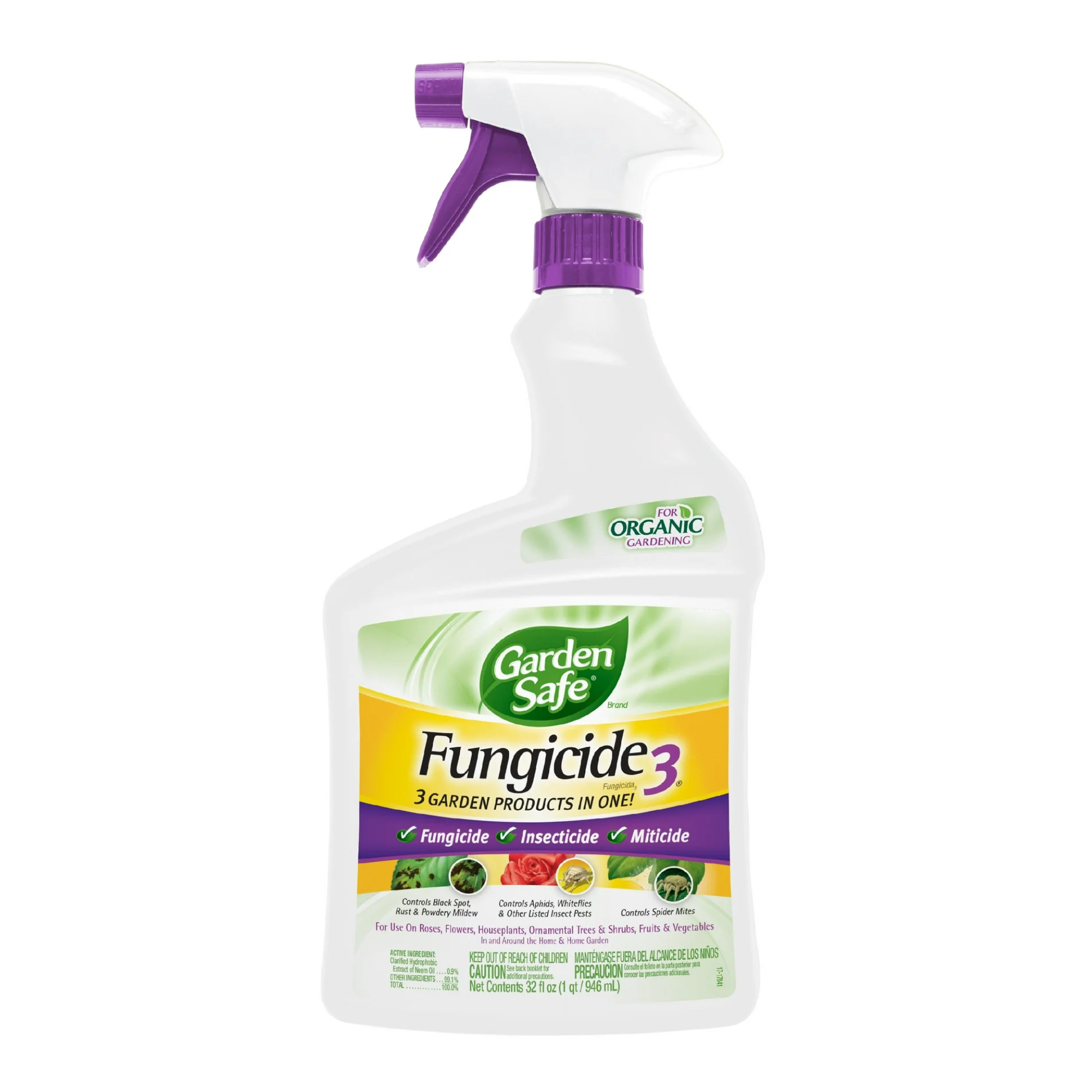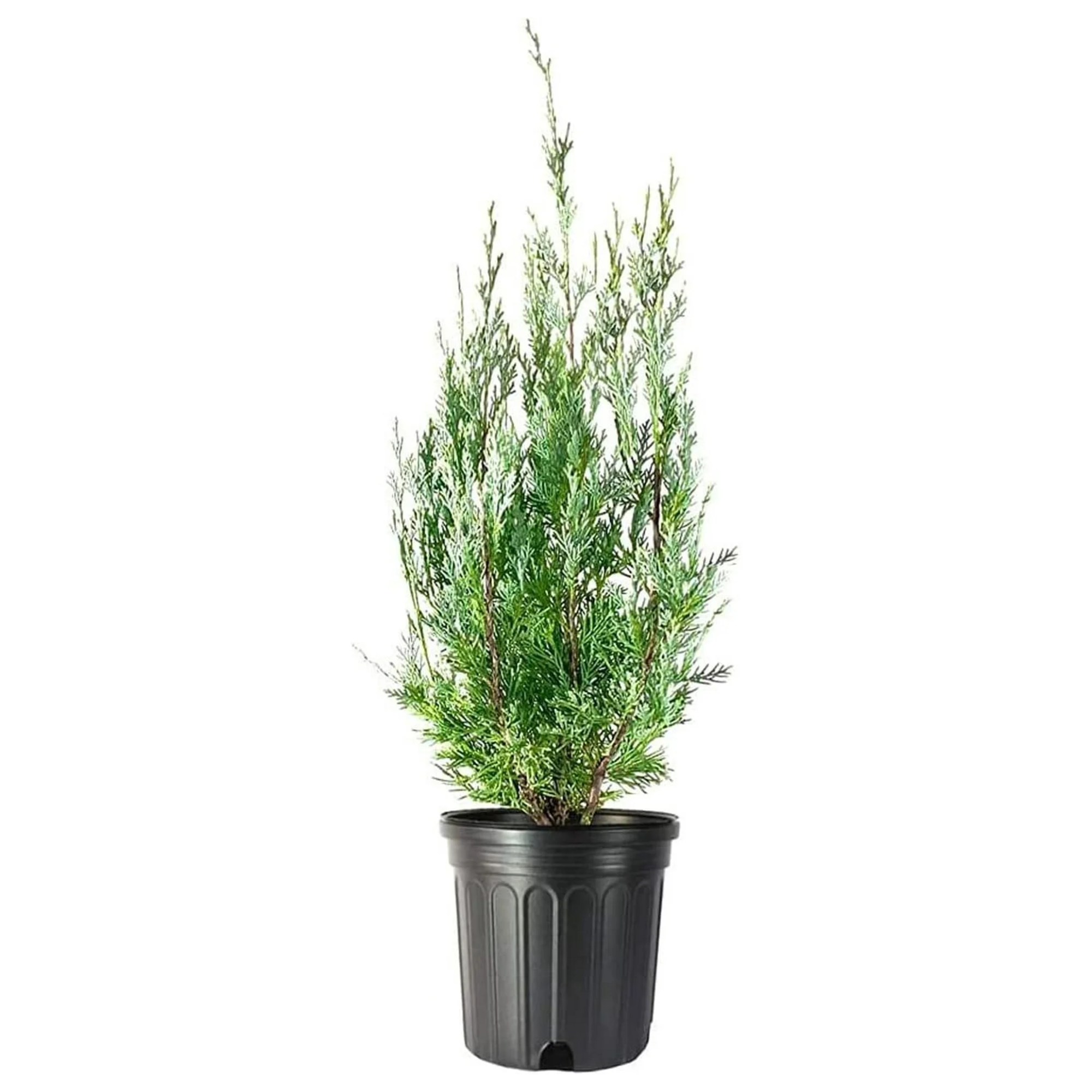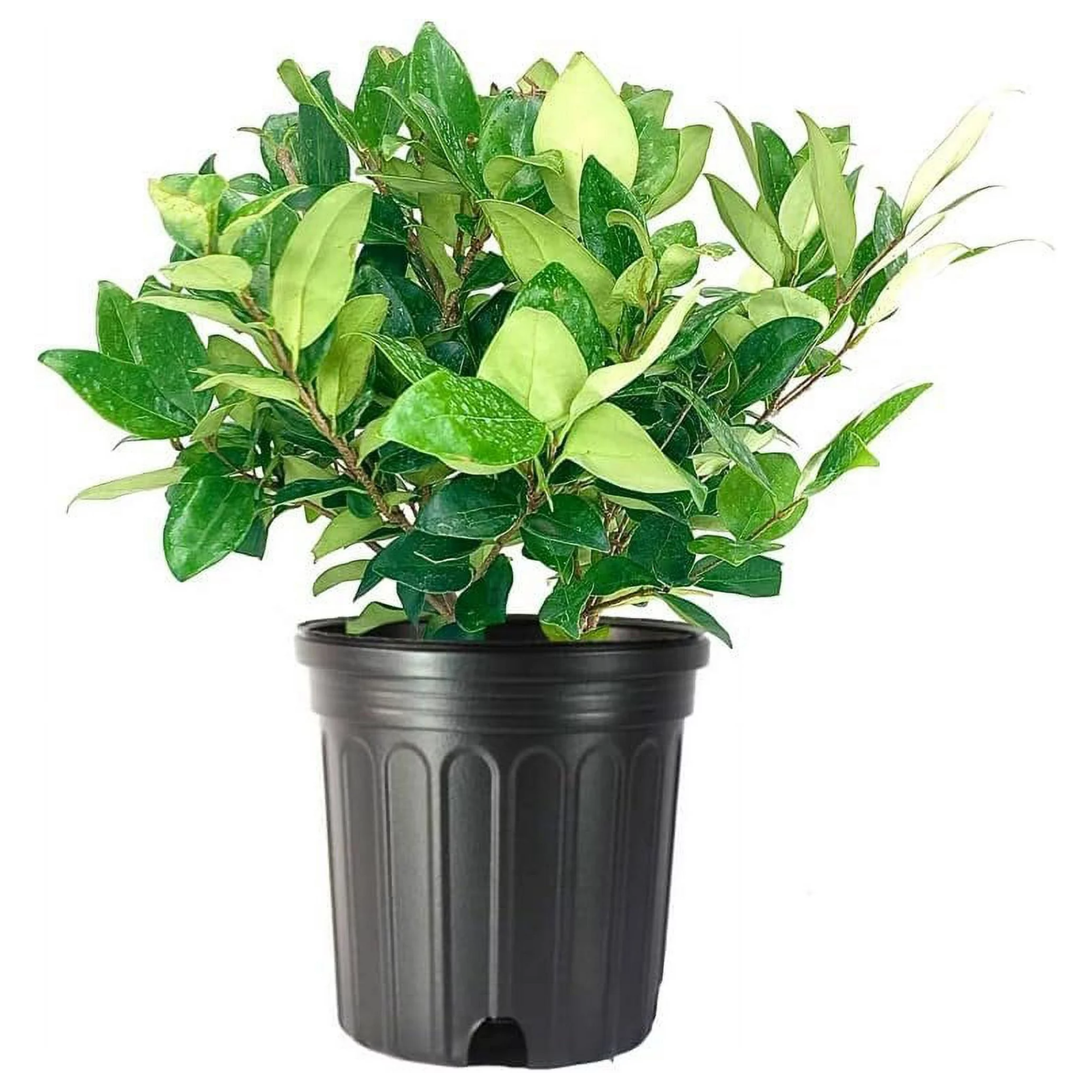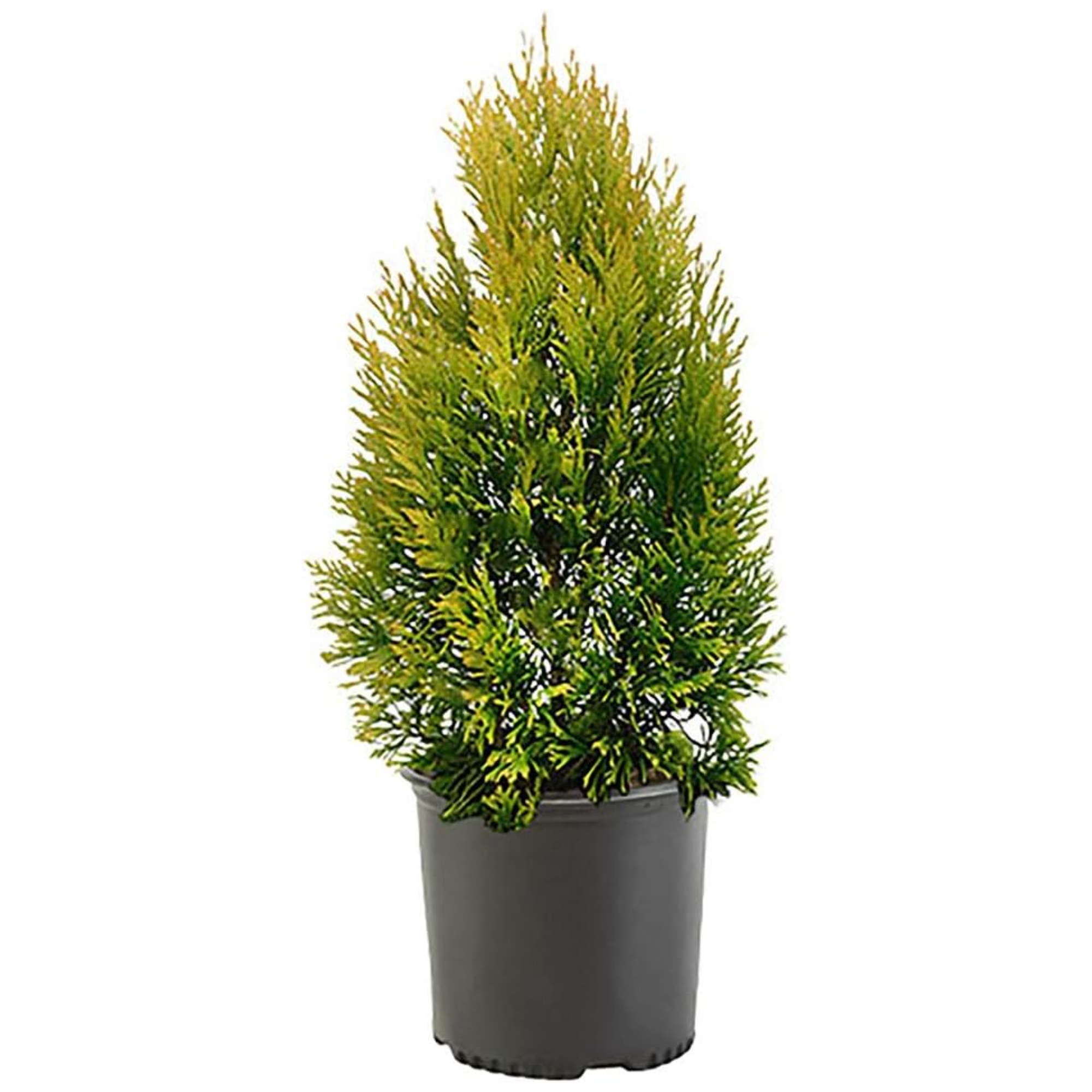This "Hollywood-Style" Hedge Is the Living Fence Landscapers Love for Maximizing Privacy
The ficus nitida shrub will certainly screen your home while offering a timeless A-list feel

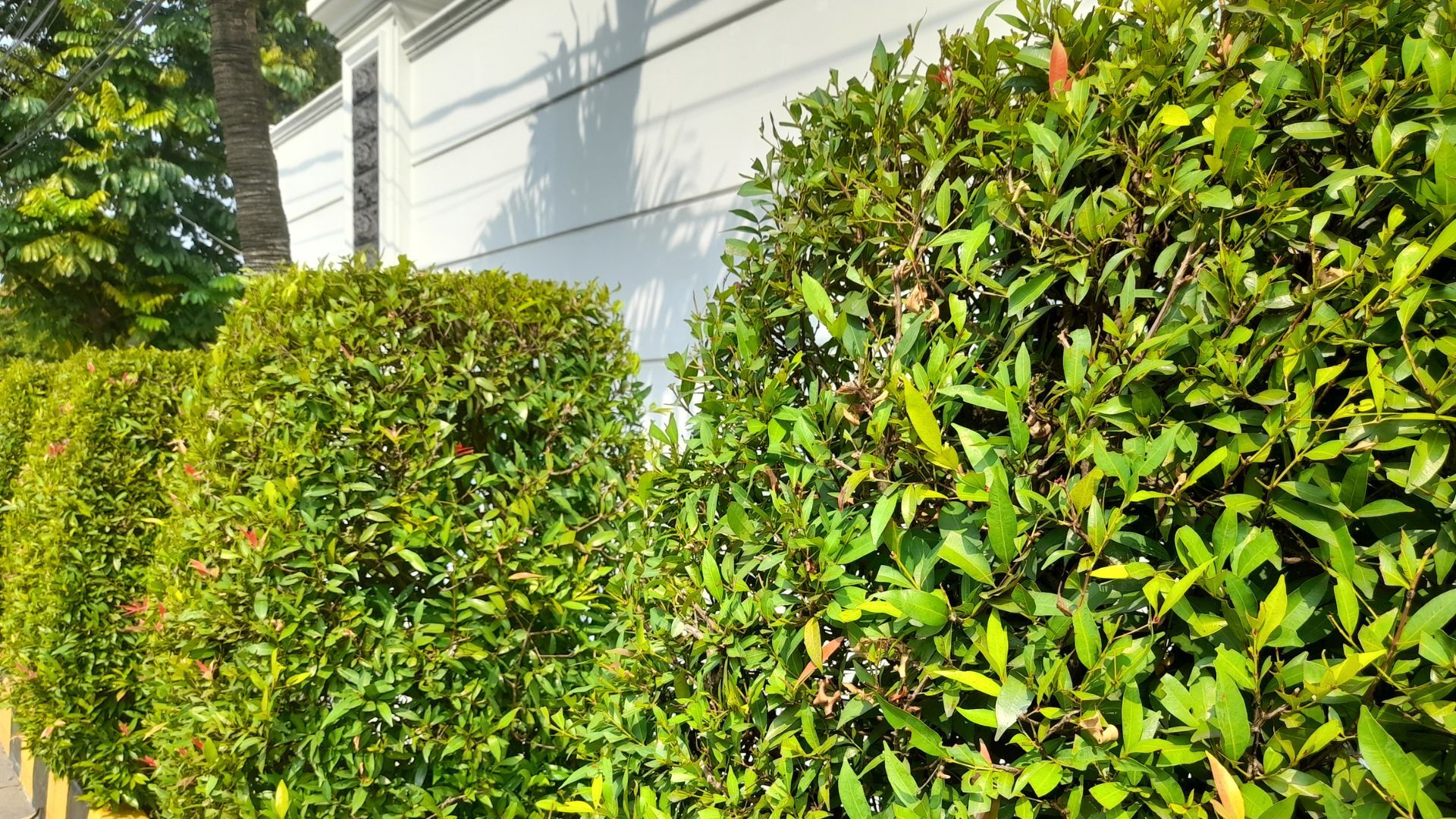
The Livingetc newsletters are your inside source for what’s shaping interiors now - and what’s next. Discover trend forecasts, smart style ideas, and curated shopping inspiration that brings design to life. Subscribe today and stay ahead of the curve.
You are now subscribed
Your newsletter sign-up was successful
Imagine lounging in your backyard, zoning out in what's meant to be your very own isle of zen, only to have your peace interrupted by your friendly neighbor looking to strike up a conversation. Don't get me wrong, neighbors are great, but sometimes all you want is a little alone time. And if there's any place you should be able to enjoy said solitary hours, it should be within the comfort of your home.
This common problem is probably the answer to why living privacy fences are all the rage right now. And while it proves to be a great solution for busy neighborhoods, it's also a lovely addition to any outdoor landscape.
Depending on whether you choose a flowering shrub or a dense tree, you can give your home a screen that's functional and beautiful. And we've just come across a new favorite, that happens to be rooted in Hollywood history as a time-honored hedge. So if you're interested in cornering your abode off from surrounding homes, then may we suggest the ever-trusty ficus nitida?
The Ficus Nitida

In conversation with gardening expert Tony O'Neill, he tells us that ficus nitida hedges are trendy screen fences because of their dense foliage, fast growth rate, and ability to create a lush, green privacy screen.
"Known as the original Hollywood hedges, they offer a sophisticated look that is highly sought after for creating secluded garden spaces and stylish outdoor environments," he says.
Planting expert Michael Clarke also finds that they are an impeccable backyard grow. "They are one of the toughest hedges that can grow in good soil or in bad soil," he notes. "And because they're one of the best fast-growing hedges for privacy, they can create screening super quick."
Michael also tells us that they can make any landscape instantly feel more lush, with their bright green foliage.
The Livingetc newsletters are your inside source for what’s shaping interiors now - and what’s next. Discover trend forecasts, smart style ideas, and curated shopping inspiration that brings design to life. Subscribe today and stay ahead of the curve.
How Easy Is It to Grow?

Tony tells us that ficus nitida is relatively easy to grow, especially in warm climates. "They thrive in full sun to partial shade and prefer well-drained soil," he says. "I'd also recommend regular watering and occasional fertilizing to promote healthy growth."
Tony also adds that these plants are resilient and can tolerate pruning, making them easy to shape and maintain as a hedge.
Considering the fact that it's one of the best trees for privacy, we aren't surprised that Michael also finds ficus nitida to be one of the easiest shrubs to cultivate. "Their root system is very strong and able to withstand a good amount of damage," he says. "And while they do like a good amount of water, they can also withstand drought and extreme heat."
So if you're looking for drought-tolerant privacy hedges to thrive in warmer zones, then ficus nitida will probably prosper in your garden.
Common Problems With Ficus Nitida Hedges
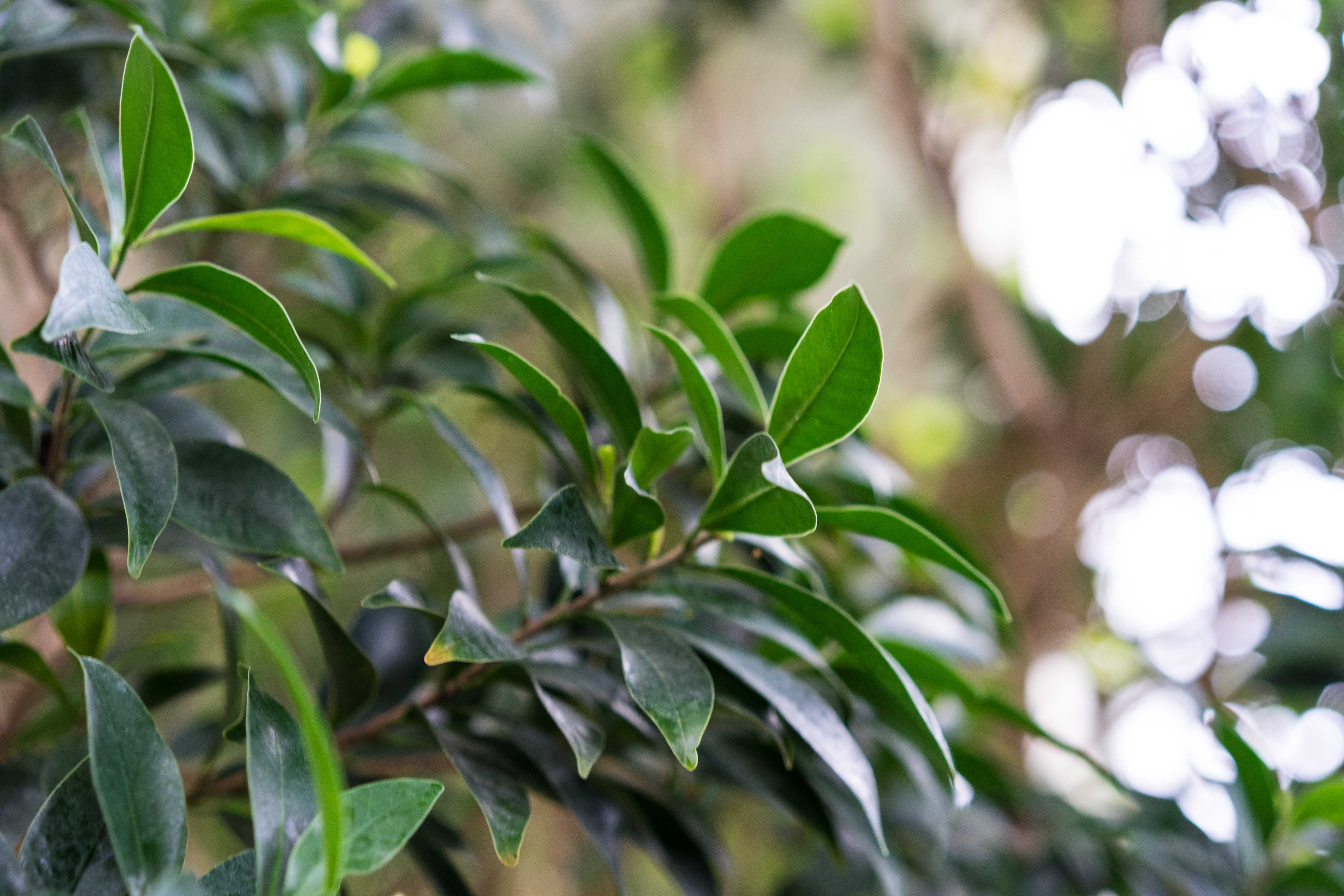
If you've been perusing backyard ideas, and looking for a way to keep your home screened off while maintaining its natural green landscape, then ficus nitida is the low-maintenance solution your garden needs. It's fairly hardy but like any garden plant, it is susceptible to some pesky problems. According to Tony, these are some easily solvable issues to look out for:
1. Whiteflies: "These pests can be controlled using insecticidal soap or neem oil," says Tony. He also recommends regularly inspecting the plants and applying treatments as needed to help keep whitefly populations in check.
2. Aphids: Similar to whiteflies, aphids also tend to love ficus nitida hedges. And just like whiteflies, Tony tells us that they can be managed with insecticidal soap and neem oil or by introducing beneficial insects like ladybugs.
3. Fungal Diseases: When it comes to fungal problems, Tony tells us that proper spacing can go a long way. He also suggests avoiding overhead watering and using fungicides to mitigate the problem.
4. Root Rot: "Ensure well-drained soil and avoid overwatering to prevent root rot," he says. "And if planted in pots, just make sure they have adequate drainage holes."
As a privacy plant, all we typically ask for is full foliage, easy care, and speedy flourishing. And it's hard to deny that this plant seems to do it all and in less time than most other privacy hedges. Plus, if it's good enough for Hollywood, it's certainly good enough for us.
FAQs
Should ficus nitida hedges be planted in the ground or in pots?
There are plenty of great options for privacy hedges for container planting, but in this case, Tony tells us that ficus nitida typically performs better when planted in the ground.
"This allows them the space to spread their roots and achieve their full growth potential," he says. "When grown in pots, they may require more frequent watering and attention to prevent root-bound."
How far apart should you plant ficus nitida?
Tony tells us that plant ficus nitida hedges approximately 2-3 feet apart to create a dense hedge. "This spacing allows them to grow together and form a continuous screen," he notes. "For a more spaced-out appearance, you can plant them 3-4 feet apart."
Alternative Hedges for Backyard Privacy

Amiya is a Home Wellness Writer at Livingetc. She recently graduated with a Masters Degree in Magazine Journalism from City, University of London, and has lent her words to beauty, fashion, and health sections of lifestyle publications including Harper’s Bazaar and Women’s Health. Her experience as a research analyst has equipped her with an eye for emerging trends. When she’s off the clock, she can be found reading, listening to music, or overanalyzing her latest Co-Star update.
